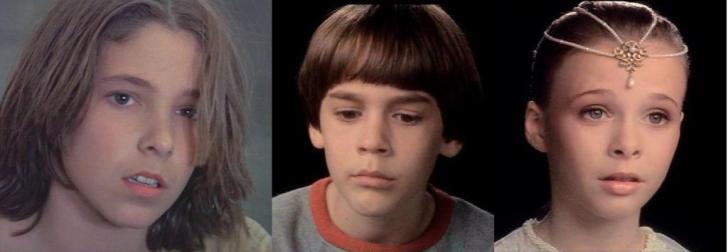The Neverending Story
This is another of those pages where I reminisce about the stories of my childhood. That is, all the books, films, comics and videogames that left the deepest marks on my young mind in the remote Eighties, by far the best decade in the history of humankind. No objections will be tolerated.
This time I’d like to talk about The Neverending Story. And here follows the inevitable question: which one, the film or the novel? The book, let me remind you, authored by the German writer Michael Ende. The film directed by the equally German Wolfgang Petersen.
I noticed that those who liked the film usually had watched it before reading the book. On the contrary, those who had read the book first almost invariably tore the film to pieces. Even the one who had written the book: Michael Ende himself was probably the most vocal in criticising the film. As the infallible Wikipedia tells us, Ende requested the producers to change the film’s name or halt production altogether. He then proceeded to sue them. Pissed off he was, no doubt. The next step would have been to attempt to stab the director, and who knows, perhaps he tried that too.
I am among those who watched the film first, and fell right away in love with it. Maybe it was me being a naïve clueless child, but I was fascinated by, in this approximate order:
- The strong and brave Atreyu, played by Noah Hathaway. For a chubby and clumsy kid like me, he represented an unattainable ideal of coolness.
- The hapless, daydreaming, book-loving Bastian, played by Barret Oliver. It goes without saying that I immediately identified with Bastian, because nerds instinctively recognise each other.
- The lovely Childlike Empress, played by Tami Stronach. I had a hopeless crush on her, and with me millions of kids around the world.
I remember watching the The Neverending Story countless times, and learning long chunks of dialogue by heart. I still remember them: if you ask me, especially after I’ve had a few drinks, I could start declaiming them with tears in my eyes. Just so you know.

Many years have passed since then, and though I admit that the film doesn’t reflect the spirit of the book, I still think it wasn’t so bad after all. Certainly a thousand times better than its two disappointing sequels. I watched the second instalment of the series, but the trailer for the third one left me so horrified that I’ve been avoiding it ever since.
For the record, I’ve read and loved the novel too. What impressed me most of The Neverending Story was the concept of Fantasia (Fantastica in the book), a world inhabited by all the dreams and hopes of humankind… and therefore containing all the stories ever told, and their characters.
Whenever I reach the end of a story that has enthralled me, I go through a painful period of abstinence crisis. I keep daydreaming about the characters I have parted from, wondering where they are and what has happened to them after the words The End. Nowadays it is not as serious a problem as it used to be, especially for the most popular stories. You just have to surf the Interwebs to find thousands of fanfics of all genres, from romance to comedy to very explicit sadomasochistic porn. Enough to take care even of the worst abstinence crisis. It’s true, you often have to close an eye to details such as creative spelling and rickety grammar, but beggars can’t be choosers.
Anyway, back in the golden Eighties we had no Interwebs at home (we were barely getting used to the printing press). I had to make do with my imagination, and create fanfics in my head, well before I encountered the word fanfic for the first time. Thanks to The Neverending Story, I found out I wasn’t the only one. If even a respected German writer cared about these ideas, to the point of writing a novel about them, maybe I wasn’t as weird as I thought.
Later on I would discover that yes, I was indeed seriously weird, though for completely different reasons.
But this is another story, and shall be told another time!
Image credits: character photos found here. Copyright owned by the film producer or publisher. Low resolution images reproduced for commentary and criticism purposes, believed to qualify as fair use/fair dealing.